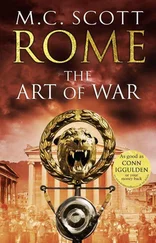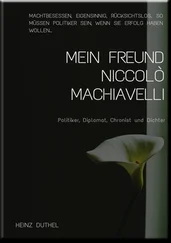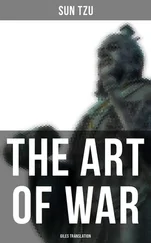Fabrizio, therefore, was honored according to the times and the place, with all the highest honors they could give him. As soon as the convivial pleasures were past and the table cleared and every arrangement of feasting finished, which, in the presence of great men and those who have their minds turned to honorable thoughts is soon accomplished, and because the day was long and the heat intense, Cosimo, in order to satisfy their desire better, judged it would be well to take the opportunity to escape the heat by leading them to the more secret and shadowy part of his garden: when they arrived there and chairs brought out, some sat on the grass which was most fresh in the place, some sat on chairs placed in those parts under the shadow of very high trees; Fabrizio praised the place as most delightful, and looking especially at the trees, he did not recognize one of them, and looked puzzled. Cosimo, becoming aware of this said: Perhaps you have no knowledge of some of these trees, but do not wonder about them, because here are some which were more widely known by the ancients than are those commonly seen today. And giving him the name of some and telling him that Bernardo, his grandfather, had worked hard in their culture, Fabrizio replied: I was thinking that it was what you said I was, and this place and this study make me remember several Princes of the Kingdom, who delighted in their ancient culture and the shadow they cast. And stopping speaking of this, and somewhat upon himself as though in suspense, he added: If I did not think I would offend you, I would give you my opinion: but I do not believe in talking and discussing things with friends in this manner that I insult them. How much better would they have done (it is said with peace to everyone) to seek to imitate the ancients in the strong and rugged things, not in the soft and delicate, and in the things they did under the sun, not in the shadows, to adopt the honest and perfect ways of antiquity, not the false and corrupt; for while these practices were pleasing to my Romans, my country (without them) was ruined. To which Cosimo replied (but to avoid the necessity of having to repeat so many times who is speaking, and what the other adds, only the names of those speaking will be noted, without repeating the others). Cosimo, therefore, said: You have opened the way for a discussion which I desired, and I pray you to speak without regard, for I will question you without regard; and if, in questioning or in replying, I accuse or excuse anyone, it will not be for accusing or excusing, but to understand the truth from you.
FABRIZIO
And I will be much content to tell you what I know of all that you ask me; whether it be true or not, I will leave to your judgement. And I will be grateful if you ask me, for I am about to learn as much from what you ask me, as you will from me replying to you, because many times a wise questioner causes one to consider many things and understand many others which, without having been asked, would never have been understood.
COSIMO
I want to return to what you first were saying, that my grandfather and those of yours had more wisely imitated the ancients in rugged things than in delicate ones, and I want to excuse my side because I will let you excuse the other (your side). I do not believe that in your time there was a man who disliked living as softly as he, and that he was so much a lover of that rugged life which you praise: nonetheless he recognized he could not practice it in his personal life, nor in that of his sons, having been born in so corrupted an age, where anyone who wanted to depart from the common usage would be deformed and despised by everyone. For if anyone in a naked state should thrash upon the sand under the highest sun, or upon the snow in the most icy months of winter, as did Diogenes, he would be considered mad. If anyone (like the Spartan) should raise his children on a farm, make them sleep in the open, go with head and feet bare, bathe in cold water in order to harden them to endure vicissitudes, so that they then might love life less and fear death less, he would be praised by few and followed by none. So that dismayed at these ways of living, he presently leaves the ways of the ancients, and in imitating antiquity, does only that which he can with little wonderment.
FABRIZIO
You have excused him strongly in this part, and certainly you speak the truth: but I did not speak so much of these rugged ways of living, as of those other more human ways which have a greater conformity to the ways of living today, which I do not believe should have been difficult to introduce by one who is numbered among the Princes of a City. I will never forego my examples of my Romans. If their way of living should be examined, and the institutions in their Republic, there will be observed in her many things not impossible to introduce in a Society where there yet might be something of good.
COSIMO
What are those things similar to the ancients that you would introduce?
FABRIZIO
To honor and reward virtu, not to have contempt for poverty, to esteem the modes and orders of military discipline, to constrain citizens to love one another, to live without factions, to esteem less the private than the public good, and other such things which could easily be added in these times. It is not difficult to persuade (people) to these ways, when one considers these at length and approaches them in the usual manner, for the truth will appear in such (examinations) that every common talent is capable of undertaking them. Anyone can arrange these things; (for example), one plants trees under the shadow of which he lives more happily and merrily than if he had not (planted them).
COSIMO
I do not want to reply to anything of what you have spoken, but I do want leave to give a judgment on these, which can be easily judged, and I shall address myself to you who accuse those who in serious and important actions are not imitators of the ancients, thinking that in this way I can more easily carry out my intentions. I should want, therefore, to know from you whence it arises that, on the one hand you condemn those who do not imitate the ancients in their actions, on the other hand, in matters of war which is your profession and in which you are judged to be excellent, it is not observed that you have employed any of the ancient methods, or those which have some similarity.
FABRIZIO
You have come to the point where I expected you to, for what I said did not merit any other question, nor did I wish for any other. And although I am able to save myself with a simple excuse, nonetheless I want, for your greater satisfaction and mine, since the season (weather) allows it, to enter into a much longer discussion. Men who want to do something, ought first to prepare themselves with all industry, in order ((when the opportunity is seen)) to be prepared to achieve that which they have proposed. And whenever the preparations are undertaken cautiously, unknown to anyone, no none can be accused of negligence unless he is first discovered by the occasion; in which if it is not then successful, it is seen that either he has not sufficiently prepared himself, or that he has not in some part given thought to it. And as the opportunity has not come to me to be able to show the preparations I would make to bring the military to your ancient organization, and it I have not done so, I cannot be blamed either by you or by others. I believe this excuse is enough to respond to your accusation.
COSIMO
It would be enough if I was certain that the opportunity did not present itself.
FABRIZIO
But because I know you could doubt whether this opportunity had come about or not, I want to discuss at length ((if you will listen to me with patience)) which preparations are necessary to be made first, what occasion needs to arise, what difficulty impedes the preparations from becoming beneficial and the occasion from arriving, and that this is ((which appears a paradox)) most difficult and most easy to do.
Читать дальше












